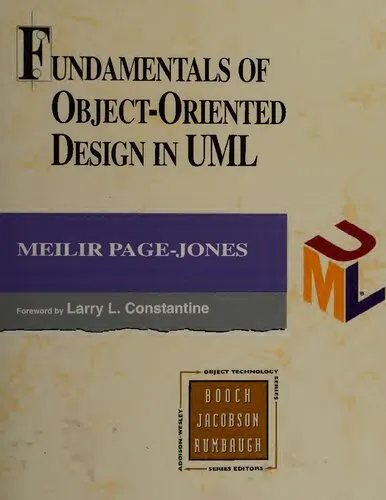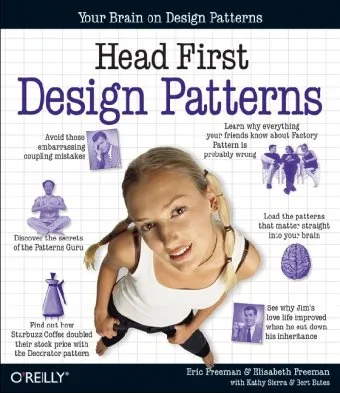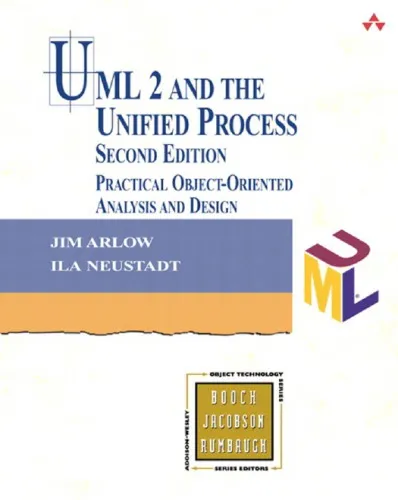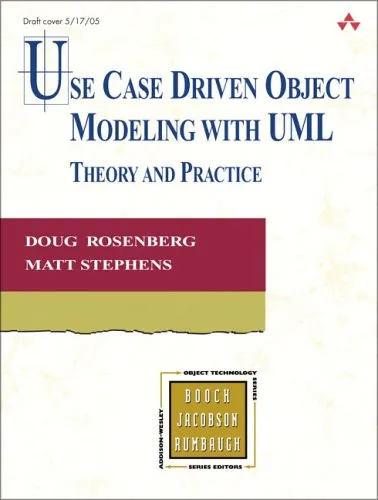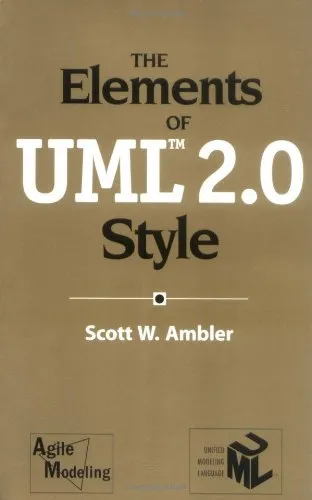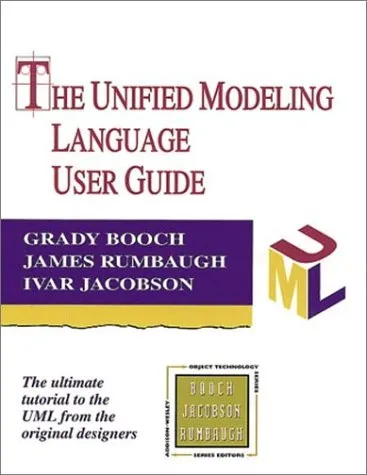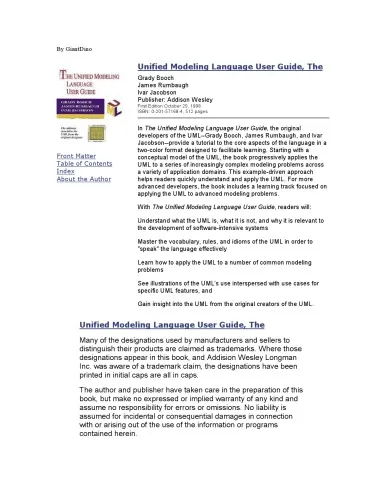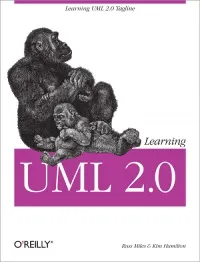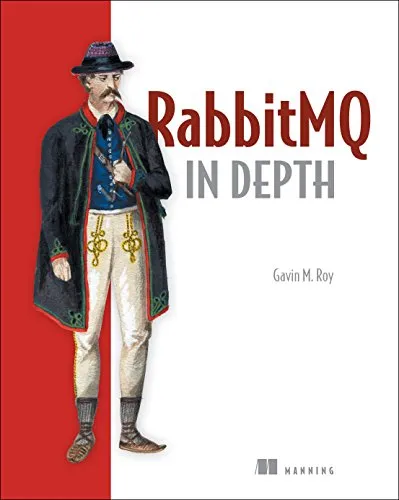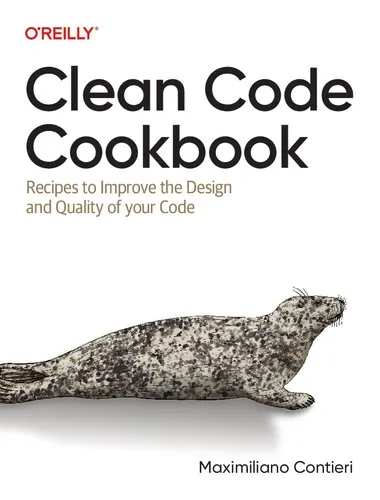Fundamentals of Object-Oriented Design in UML
4.0
Reviews from our users

You Can Ask your questions from this book's AI after Login
Each download or ask from book AI costs 2 points. To earn more free points, please visit the Points Guide Page and complete some valuable actions.Related Refrences:
Introduction to 'Fundamentals of Object-Oriented Design in UML'
Welcome to the world of object-oriented design, where simplicity meets complexity, and innovation meets practicality. "Fundamentals of Object-Oriented Design in UML" offers an insightful journey into the principles, techniques, and applications of object-oriented design using the Unified Modeling Language (UML). Authored by Meilir Page-Jones, this book serves as a comprehensive guide for both beginner and seasoned developers aiming to harness the power of UML in software development.
Detailed Summary of the Book
Object-Oriented Design (OOD) and UML are two vital components of modern software engineering. In this book, Meilir Page-Jones provides a structured approach to understanding and implementing these concepts. The book is meticulously organized into several parts, each focusing on fundamental aspects of object-oriented design.
The initial chapters focus on the core principles of OOD, delineating how these principles apply to software development. The reader is introduced to key object-oriented concepts such as encapsulation, inheritance, and polymorphism, illustrated with practical examples.
As the book progresses, it delves into the world of UML, a powerful modeling language crucial for visualizing and constructing the design of systems. Page-Jones explains various UML diagrams, such as class diagrams, sequence diagrams, and use case diagrams, providing readers with the tools to effectively communicate their designs.
The book also covers advanced design patterns and strategies, offering insight into designing robust and scalable software systems. By the end of the book, readers will have gained a profound understanding of how to translate complex requirements into precise, elegant designs.
Key Takeaways
Understanding of fundamental object-oriented principles and how they relate to software design.
Proficiency in using UML for modeling and designing software systems.
Insight into designing systems that are robust, flexible, and easy to maintain.
Ability to apply design patterns and techniques in real-world software projects.
Skills in effectively communicating software designs to developers and stakeholders.
Famous Quotes from the Book
"To design truly effectively, one must learn to respect the harmony between form and function."
"In the world of software, complexity is both a challenge and an opportunity. Master it, and you've mastered not just technology, but art."
Why This Book Matters
In today's fast-paced technological landscape, software design has become more critical than ever. The shift towards agile methodologies and DevOps practices necessitates a solid understanding of object-oriented principles and effective design communication techniques. This book stands at the intersection of these needs.
"Fundamentals of Object-Oriented Design in UML" is more than just a textbook; it is a roadmap to mastering the art and science of software design. Through clear explanations, practical examples, and thoughtful insights, Meilir Page-Jones has crafted a resource that is indispensable for anyone involved in software development, from developers to project managers and architects.
Beyond its technical merits, the book emphasizes a design philosophy that advocates for simplicity and elegance, teaching readers to appreciate and apply these principles in their work. This focus makes the book not only a tool for professional development but a catalyst for creativity and innovation in the field of software engineering.
Free Direct Download
You Can Download this book after Login
Accessing books through legal platforms and public libraries not only supports the rights of authors and publishers but also contributes to the sustainability of reading culture. Before downloading, please take a moment to consider these options.
Find this book on other platforms:
WorldCat helps you find books in libraries worldwide.
See ratings, reviews, and discussions on Goodreads.
Find and buy rare or used books on AbeBooks.
